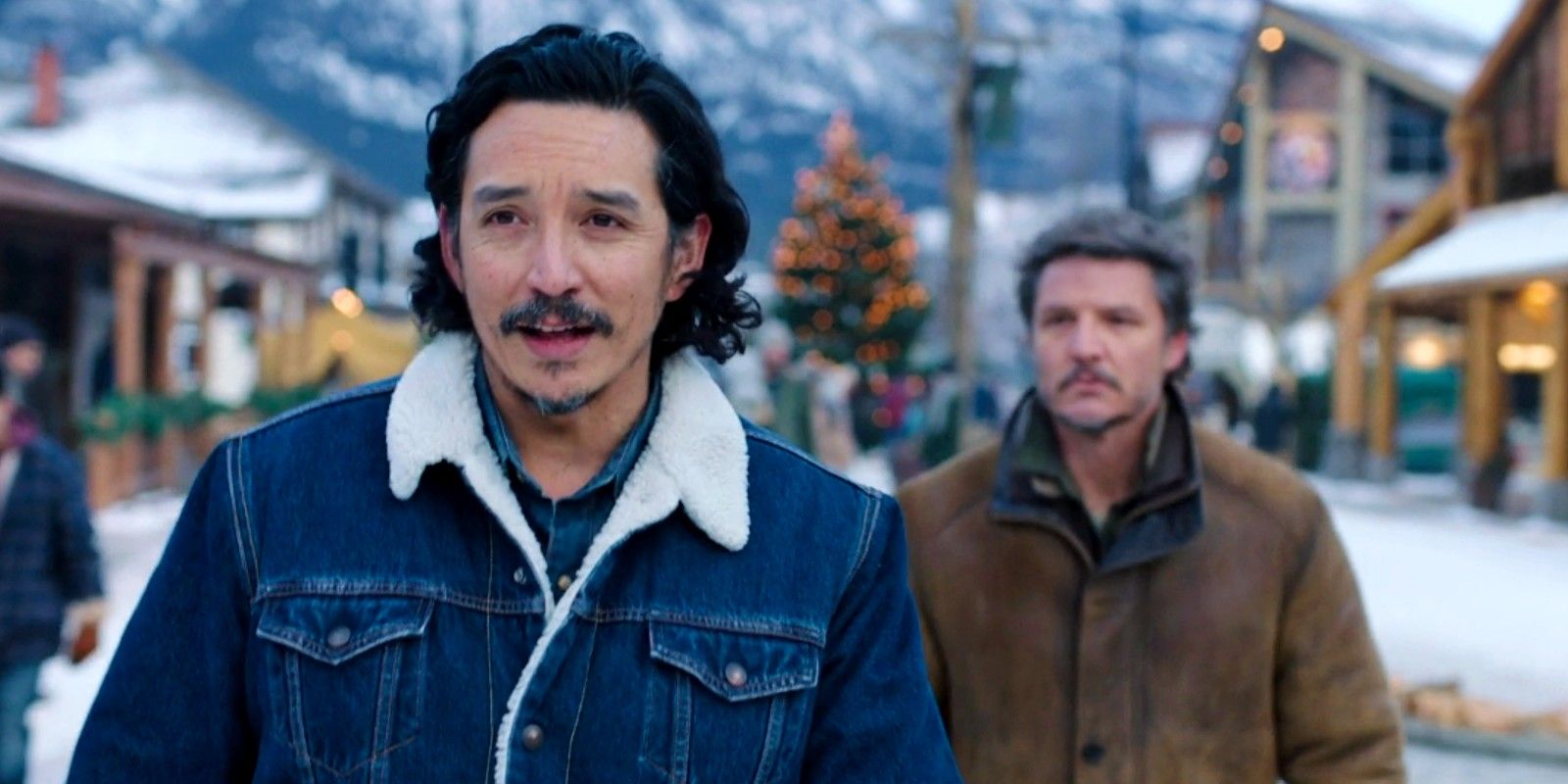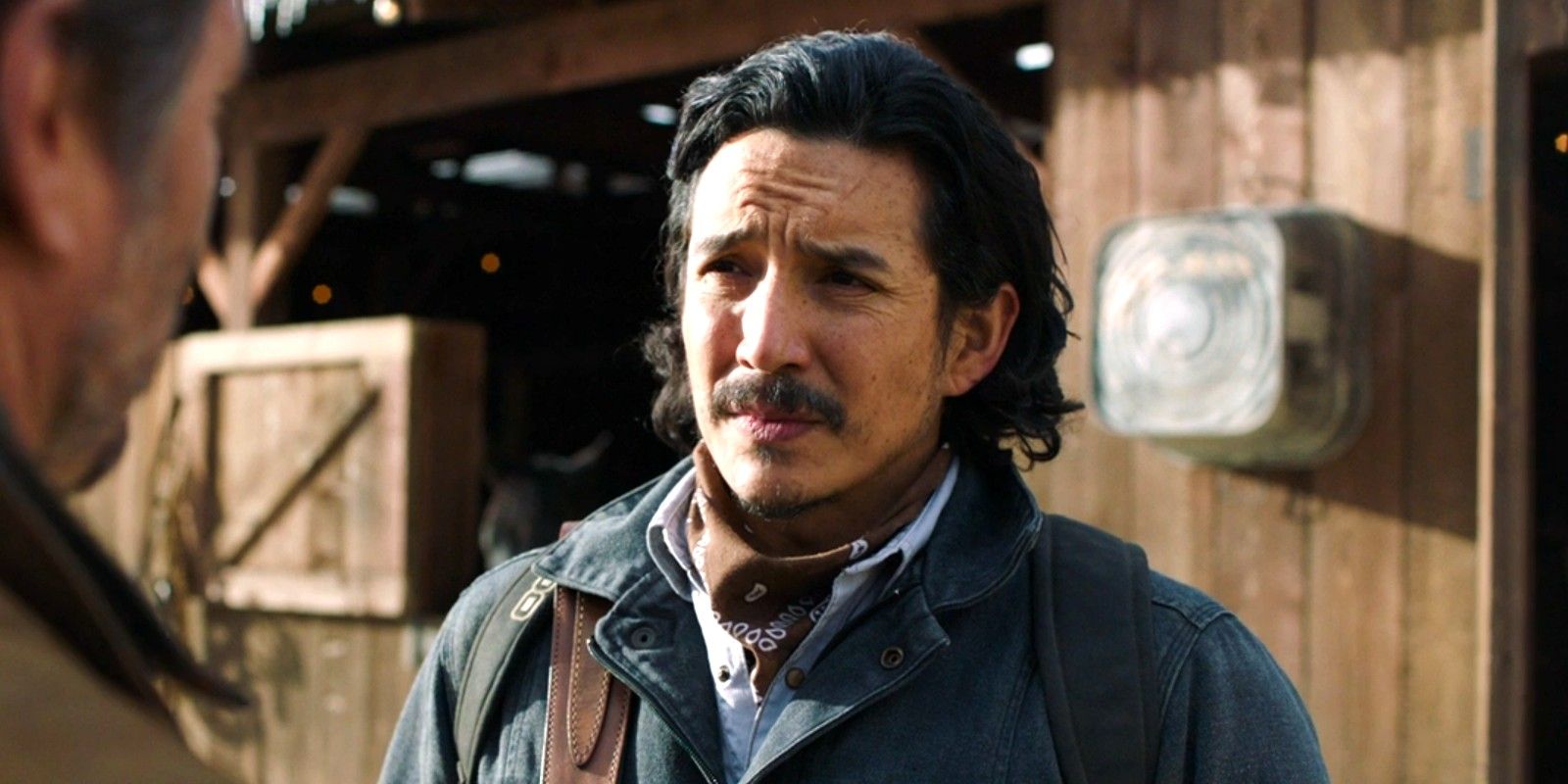The article contains spoilers from The Last of Us episode 6. The brotherly bond between Joel (Pedro Pascal) and Tommy (Gabriel Luna) in The Last of Us transpired due to some real-world interactions. By the time The Last of Us begins, Joel and Tommy haven't seen each other in years since Tommy leaves Joel to travel the country and eventually help build Jackson, Wyoming. Joel, meanwhile, stayed in the Boston Quarantine Zone and only left to find his brother and deliver Ellie (Bella Ramsey) to the Fireflies. When the brothers reunite, their relationship is strained because of the disagreements between Joel and Tommy, but their bond still lies underneath it.
Actors Pascal and Luna needed to ensure that there was a way that they could get across Joel and Tommy's connection, despite the difficult circumstances. In an interview with Newsweek, Luna explained how they managed to find some real-world commonalities to help build that bond. Check out his quote below:
"I've been an admirer of his work for some time, and we have a lot of mutual friends, so we've kind of heard about each other, and they were kind enough to say mostly nice things about me to him, and vice versa. So, we already had a good place to start, and then we just started our dialogue, started communicating back and forth. We met, we started talking on FaceTime, talking about each other's families, realized that we have a similar upbringing. He was born to Chile, but he was raised in San Antonio, Texas. So right there off the bat we had that in common with our characters, we had that in common with each other, and it was very easy to slide into those roles. I think, at that point, it just became a matter of studying each other and trying to find the threads that weave us and bind us. What I used was his physicality and his body, and his mannerisms, and trying to access where that comes from and be able to share that with him. And then I think, with him, he was drawn to my speaking voice and how I speak naturally. I kind of lay it on a little thicker for Tommy, but we know what it sounds like, we know those people, like I said, we grew up in the area. And, so, he had me read some Cormac McCarthy for him and record it so that he could study that. We just had this exchange of assets, and then you're just playing with the words man, with a really well written script. Having a brother myself, we're only two years apart very similar to the characters, it's inverted and of course I'm the older on and my brother is the Tommy, but we had all of that to our advantage, and so we just tried to lean into it."
Why Tommy Is So Important To Joel In The Last Of Us
Two decades after the apocalypse wiped away the majority of the world's population, the survivors in The Last of Us have few ties back to the world before the outbreak. For Joel, who lost his home, his community, and his daughter, Tommy is the last meaningful connection he has with the world, aside from a broken watch. With so many enemies out to attack Joel and Ellie, Tommy represents a safe place to go to.
Tommy is also someone that Joel grew up with and cares for since Tommy is willing to help him with Ellie. Despite Joel showing up with a little girl, Tommy doesn't question him much and seems to value Sarah as much as Joel does, even 20 years after her death. Although seeing Tommy only makes Joel's anxiety attacks worse, he also provides Joel with a person to go to who understands him.
The settlement of Jackson is essential to The Last of Us as well, and Tommy offers Joel a chance to be there permanently. In The Last of Us episode 6, Jackson is presented as a civilization rehabilitating, and it's an opportunity for Joel and Ellie to find stability in the apocalypse. While they aren't able to accept it, that settlement gives Ellie something to fight to preserve, and it offers Joel a temporary reprieve — something swiftly shattered by episode 6's cliffhanger ending.
Source: Newsweek


